Co-authored by Frieda Friedemann
Intergenerational trauma is commonly misunderstood as a cycle that needs breaking, when really, there is no cycle to break. Rather than “trauma” being directly transmitted from generation to generation, intergenerational trauma is more complicated and requires careful consideration. This starts with the term. The intergenerational effects of exposure to trauma is a more accurate way to describe the way traumatic events may affect people across generations. In this blog we will explore how trauma can affect the psychology and neurobiology of subsequent generations.
What is trauma?
In order to understand the intergenerational effects of trauma we need to know what trauma is. Below are some psychological definitions of trauma.
The American Psychological Association (APA) defines trauma as the “emotional response to a terrible event” with shock and denial being common short-term effects. They also defined common long-term symptoms, including unpredictable emotions, flashbacks, strained relationships, headaches and nausea (APA, 2021).
The Australian Psychological Society (APS) describes trauma as the psychological harm that results from very frightening or distressing events, which may affect a person’s ability to cope or function normally (APS, 2023.). The APS adds: “Some people experience problems directly after the traumatic event or much later”(APS, 2023).
Phoenix Australia state that Any event that involves exposure to actual or threatened death, serious injury, or sexual violence has the potential to be traumatic. Traumatic events can include, experiencing a serious accident, a physical assault, war, a natural disaster, sexual.
Lastly, Cambridge Dictionary refers to trauma as “a severe and lasting emotional shock and pain caused by an extremely upsetting experience” (Cambridge University Press, n.d.).
These definitions all involve an event. The concept of trauma being intergenerational does not fit with events being associated with the idea of being traumatized. Is one traumatized simply by being the member of a family that has historically been involved in traumatic events? Events can not be passed on, meaning of events can be. Similarly, alterations in behaviour after events can affect the next generation.
The intergenerational effects of exposure to trauma
Mainstream and social media adopting the term “intergenerational trauma” has the potential to be misleading. In this article, in an attempt to reduce misinformation we will refer to the intergenerational effects of trauma, and what the research says about this. Due to this area being complicated we will attempt to provide simplified summaries of the data.
In a study of 135 Holocaust survivors Rachel Yehuda and team (2001) found a specific association between parental PTSD and the occurrence of PTSD in offspring. They also found that parental trauma exposure, more than parental PTSD, was found to be associated with depressive disorder in the children of Holocaust survivors.
In another study with a different team Rachel Yehuda, Sarah Halligan and Robert Grossman (2001) found that the adult children of Holocaust survivors reported higher levels of childhood trauma, particularly emotional abuse and neglect, relative to comparison subjects. They stated that this difference was mostly attributable to parental PTSD. Yehuda and her team concluded that the experience of childhood trauma (traumatic events) may be an important factor in the transmission of PTSD from parent to child.
To assess the intergenerational effects of trauma exposure Nigel Field and colleagues (2013) studied the effect of parental styles among mothers who survived the Khmer Rouge regime in Cambodia. They examined mothers and daughters. Each daughter completed anxiety and depression measures as well as assessment of her mother’s role-reversing, overprotective, and rejecting parental styles. The mothers completed measures of their trauma exposure during the Khmer Rouge regime and PTSD symptoms. They found that the mother’s PTSD symptoms were predictive of her daughter’s anxiety. They also found that the mother’s role-reversing parental style mediated the relationship between her own and her daughter’s symptoms.
Georgina Hartzell and colleagues (2022) examined parenting stress and parenting behaviour quality as mediators of the relation between maternal PTSD and problematic child behaviours in a group of women and their children at high risk for trauma exposure (single African American women and their children living in low-income urban areas with high trauma exposure).
In their study Hartzell and team (2022) used self report measures as well as observation. They reported that parenting stress, but not observed parenting behaviour quality, mediated the relation between maternal PTSD severity and child behaviours.
That is to say the more a mother with PTSD reported parenting stressful the more her child had problematic behaviours. When the mothers were observed with children this effect was not apparent.
There are other significant points in this study. If the child was female then the effect of parenting stress on her behaviour was stronger than if the child was male. They also reported that their findings were not influenced by the child being exposed to trauma.
Hartzell and colleagues (2022) suggested that PTSD symptoms such as numbness, hypervigilance, negative cognitions, and mood could interfere with common parenting skills such as receptivity to the needs of a child and tolerating a child’s distress.
Systematic Review and Meta analysis
Systematic reviews and meta-analyses present results by combining and analysing data from different studies conducted on similar research topics. They can be an effective way to examine the data in an area of study.
Yingying Su and colleagues (2022) examined the intergenerational effect of maternal childhood maltreatment on the next generation’s vulnerability to psychopathology. That is, when the mother has been the victim of maltreatment, what are the effects on the next generation? Su’s team completed a systematic review and meta analysis. There analysis was of 12 studies, reduced down from 168 studies researching the area. They reported that maternal childhood maltreatment was found to have a small but significant effect on the offspring’s depression and internalizing behaviors (Internalizing behaviours are negative behaviours that are focused inward. They include fearfulness, social withdrawal, and somatic complaints.)
They also found two factors that moderated (reduced) the effect of the mother’s experience of maltreatment on their children. These were ethnicity and depression. If the mother was Caucasian the correlation between the maltreatment she had suffered and her children having mental health difficulties was less than if the mother was non-Caucasian. Surprisingly, if the mother was depressed, her suffering maltreatment did not have as strong correlation with her children having mental health difficulties. As a matter of course this does not rule out that a mother’s depressed state may be correlated with her children having mental health problems. The two issues, the mother’s experience of mal-treatment and the mother’s depression are competing factors in their influence on childhood mental health issues.
Summary
In summary, for the studies examined in this blog the intergenerational effects of trauma exposure appear to be linked to a higher prevalence of mental health problems, such as depression, anxiety and internalising behaviours. The case for a direct passing on of PTSD does not appear to be supported. There also appears to be some factors that moderate the influence of the parents’ trauma. This includes if the child is male vs female, Caucasian vs non-Caucasian, if the mother is depressed, and if the mother has role-reversing parental style. Another consideration is that there does not appear to be much information about what happens when parents receive treatment for their PTSD.
References
American Psychological Association. (2021). Trauma. https://www.apa.org. https://www.apa.org/topics/trauma
Australian Psychological Society. (2023). Trauma | APS. psychology.org.au. https://psychology.org.au/for-the-public/psychology-topics/trauma
Cambridge Dictionary. (2019). TRAUMA | meaning in the Cambridge English Dictionary. cambridge.org. https://dictionary.cambridge.org/dictionary/english/trauma
Field, N. P., Muong, S., & Sochanvimean, V. (2013). Parental styles in the intergenerational transmission of trauma stemming from the Khmer Rouge regime in Cambodia. The American journal of orthopsychiatry, 83(4), 483–494. https://doi.org/10.1111/ajop.12057
Hartzell, G., Stenson, A. F., van Rooij, S. J. H., Kim, Y. J., Vance, L. A., Hinrichs, R., Kaslow, N., Bradley, B., & Jovanovic, T. (2022). Intergenerational effects of maternal PTSD: Roles of parenting stress and child sex. Psychological Trauma: Theory, Research, Practice, and Policy, 14(7), 1089–1098. https://doi.org/10.1037/tra0000542
Lehrner, A. (2018). Intergenerational transmission of trauma effects: Putative role of epigenetic mechanisms. World Psychiatry, 17(3), 243–257. https://doi.org/10.1002/wps.20568
Su, Y., D’Arcy, C., & Meng, X. (2022). Intergenerational Effect of Maternal Childhood Maltreatment on Next Generation’s Vulnerability to Psychopathology: A Systematic Review With Meta-Analysis. Trauma, violence & abuse, 23(1), 152–162. https://doi.org/10.1177/1524838020933870Yehuda, R., &
Yehuda, R., Halligan, S. L., & Bierer, L. M. (2001). Relationship of parental trauma exposure and PTSD to PTSD, depressive and anxiety disorders in offspring. Journal of psychiatric research, 35(5), 261–270. https://doi.org/10.1016/s0022-3956(01)00032-2
Yehuda, R., Halligan, S. L., & Grossman, R. (2001). Childhood trauma and risk for PTSD: relationship to intergenerational effects of trauma, parental PTSD, and cortisol excretion. Development and psychopathology, 13(3), 733–753. https://doi.org/10.1017/s0954579401003170






